 The card manufacturing industry has a responsibility to go green through reducing resources, reusing materials and recycling products. Matteo Panetta, area sales manager at SPICA and a member of the International Card Manufacturers Association (ICMA), reveals ways the card manufacturing industry can make use of the circular economy, as well as reduce, reuse and recycle to save the planet.
The card manufacturing industry has a responsibility to go green through reducing resources, reusing materials and recycling products. Matteo Panetta, area sales manager at SPICA and a member of the International Card Manufacturers Association (ICMA), reveals ways the card manufacturing industry can make use of the circular economy, as well as reduce, reuse and recycle to save the planet.
“Plastics account for 13% of waste,” Panetta said. “However, replacing them would lead to three to four times more waste. It’s a material that must be collected and disposed of correctly, which offers the card manufacturing industry an opportunity to make a great contribution. Our waste can receive new dignity by re-feeding the process, which creates continuity between the end and beginning of the material’s life. The result is a virtuous circle that reduces the use and waste of natural resources, raw and defective materials.”
Let’s start with how the card manufacturing industry can take advantage of the circular economy.
Circular Economy
The circular economy changes the way in which value is created and preserved, how production is made more sustainable and which business models are used. It allows card manufacturers to dispose of waste in an orderly and functional way. This gives new life and value to scraps, thereby creating a source of new material to draw on.
The circular economy:
- Is different from the linear economy
- Is a key element for creating a virtuous circuit that involves all the players in the card manufacturing industry
- Closes the cycles of all raw materials
- Requires much more than just recycling
Reduce
The card manufacturing industry can reduce:
- By decreasing the amount of virgin raw material used to create products: This results in a reduction, which impacts on the diffusion of industrial waste and on the emissions caused by the production of virgin materials. Also, on the use of additives and additional components which are practically eliminated.
- By using renewable resources: SPICA tries not to weigh on natural resources. This is accomplished by using renewable resources and equipping the plants with technical features that can maintain a high production standard, without ruining the environment.
Reuse
The resources that the card manufacturing industry will have access to will be increasingly scarce, starting with fossil oils, which is why it should reuse. Additionally, the world is going in a different direction. One that involves creativity, inventiveness, out-of-the-box and innovative thinking. Staying stuck in old habits and paradigms risks turning the industry into dinosaurs, who don’t notice that the context around them is rapidly changing.
Reasons to reuse:
- Good for nature
- Creates value
- Sustains the industry in the long term
- Requires just a change in mindset
The market demands a more conscientious and flexible approach, which considers all the criteria that reality presents us. This belief made SPICA the first to go in this direction and continues to make the company move toward a horizon of innovation and sustainability. SPICA can have a large pool of waste from which to draw, to obtain precious raw material, without having to affect the planet’s resources. The possibility is available; it’s just a matter of making a choice.
Recycle
Consider PVC, as recycled PVC means less carbon footprint. PVC is made of 57% chlorine (derived from industrial grade salt) and 43% carbon (derived predominantly from oil/gas via ethylene). PVC is a natural resource saving plastic, in contrast to plastics such as PC, PE, PP, PET and PS, which are totally dependent on oil or gas.
An example is SPICA’s SICO-R, which is a rigid PVC Film, produced with minimum 99% recycled PVC post industrial. It’s printable on both sides and has an external protective layer (overlay) available (coated or uncoated).
The Time is Now
The card manufacturing industry can become obsolete in an instant, with the emergence of new technologies and trends.
“We must continue to innovate, while telling a story of collaboration, respect for the planet and our work,” Panetta continued. “By reusing our waste, the card manufacturing industry continues to give dignity and value to what we do. This is the path SPICA has taken and there’s no turning back. We ask all our friends, customers, suppliers and competitors to walk with us towards this future too.”
More Insights on Card Trends
For more than 30 years, ICMA has represented the interests of the card manufacturing industry—which includes manufacturers, personalizers, issuers and suppliers—as its leading global association.
In response to consumer and card issuer demand for green transaction and identification cards, the ICMA EcoLabel Standard Program provides a determination of the environmental performance of a manufacturer’s cards through a third-party ecolabeling certification program. Manufacturers can become EcoLabel Program licensees to showcase their support of sustainability initiatives. Licensees can also offer clients a valuable EcoLabel opportunity for cards that meet established criteria in the following categories: reduced materials, recycled content, compostable and biobased content.
ICMA also offers regular educational opportunities, including virtual ACE-Commercial training, which provides sales, marketing, customer service and other key personnel at ICMA member companies with the opportunity to learn the fundamentals of card manufacturing.
Throughout the year, ICMA members have the opportunity to share insights and knowledge by giving presentations during ICMA webcasts and events. The association’s main event is its annual Card Manufacturing & Personalization EXPO. The next EXPO will take place May 15-18, 2023 in Orlando, Florida.
Learn more about the benefits of an ICMA membership.
